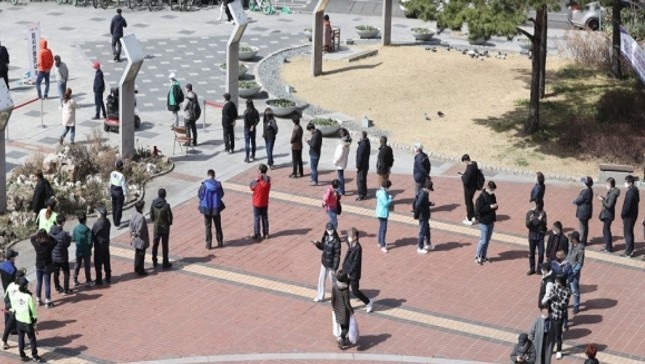‘Ridiculous’: Experts slam Seoul’s testing mandate for all foreign workers
Medical professor raises human rights question
By Shin Ji-hyePublished : March 18, 2021 - 14:57

Medical experts are baffled by the Seoul city government’s decision to mandate coronavirus tests for all foreign workers in the city, saying it is discriminatory, scientifically unjustifiable and may even violate human rights.
The Seoul Metropolitan Government issued an administrative order on Tuesday requiring all foreign workers in the city to undergo diagnostic tests March 17-31 to prevent the spread of the coronavirus. Fines of up to 2 million won ($1,778) will be imposed if they fail to get tested during the period.
The measure was announced after a rise in the number of confirmed cases among foreign factory workers who live in groups and work in enclosed, crowded environments.
But experts say this solution is poorly thought through at best.
“It is ridiculous. I don’t know what the Seoul city government is thinking,” professor Lee Jae-gap of Hallym University Medical Center told The Korea Herald.
“In this (pandemic) situation, how are foreigners different from Koreans? They have been in our country for many years. This is a matter of even violating human rights,” Lee said.
The professor said preemptive spot inspections to test foreign factory workers were understandable because the virus could spread fast in such conditions.
“But what’s different from foreigners who don’t (work in such environments) from Korean employees? The number of confirmed cases among foreigners is not even that high,” Lee said.
According to the city government, confirmed cases in foreigners accounted for 6.3 percent of all confirmed cases in Seoul from January to March.
On his Facebook account later, he asked, “Seoul City, why do you do this unhuman rights act?”
Song Man-ki, a senior research scientist at the International Vaccine Institute, left a comment under Lee’s post, saying, “The lab (officials) also say it’s hard to believe. I thought this was fake news. But it is sad this is true.”
Chun Eun-mi, a professor at Ewha Womans University Medical Center, said, “Foreign workers living in Seoul are in the same environment as other Koreans. There is a lack of scientific evidence (to support this measure). With (Seoul City’s) logic, all people in the city should be tested.
“The solution is to test workers in factories or enclosed workplaces periodically. Since the government can’t do it all, it should distribute rapid test kits to factories or send health clinic officials so that they can test their workers every week or two. The rapid test is not as painful as the polymerase chain reaction test.”
For a rapid test, a person can collect nasal mucus or phlegm on their own and put it in a diagnostic kit. The results become available within 30 minutes.
In response to controversy about racism and discrimination against foreigners, Seoul City said it originally intended to issue the order only for foreign workers in certain jobs, such as factory workers. But it changed the policy because that might have constituted discrimination based on occupation.
Park Yu-mi, quarantine controller at the Seoul Metropolitan Disaster and Safety Countermeasures Headquarters, said at Thursday’s briefing that the number of confirmed cases among foreign workers in the January-March period was triple the number seen in the November-December period. The city had difficulty testing foreign workers because many were not registered with immigration, she said.
She said they made the decision after sufficient discussion with related experts through the city’s sustainable quarantine prevention council.
The order targets foreign nationals only, and specifically foreign workers. As of the end of 2020, according to statistics from the Ministry of Justice, there were about 60,000 foreign workers in Seoul.
The test requirement applies to ethnic Koreans of Chinese nationality but excludes Koreans with dual citizenship. Officials working for embassies or governments are also excluded, as are people who were tested March 1-17.
Employers will not face fines if their foreign workers do not get tested. But if a mass outbreak occurred due to their failure to get tested, the employer might have to pay the quarantine costs, the city government said.
By Shin Ji-hye (shinjh@heraldcorp.com)

















![[KH Explains] Hyundai's full hybrid edge to pay off amid slow transition to pure EVs](http://res.heraldm.com/phpwas/restmb_idxmake.php?idx=652&simg=/content/image/2024/04/18/20240418050645_0.jpg&u=20240418181020)

![[Today’s K-pop] Zico drops snippet of collaboration with Jennie](http://res.heraldm.com/phpwas/restmb_idxmake.php?idx=642&simg=/content/image/2024/04/18/20240418050702_0.jpg&u=)